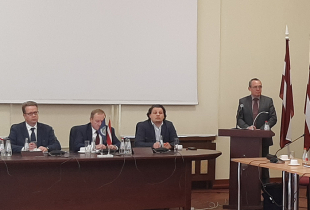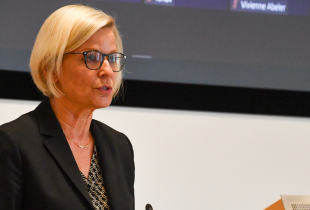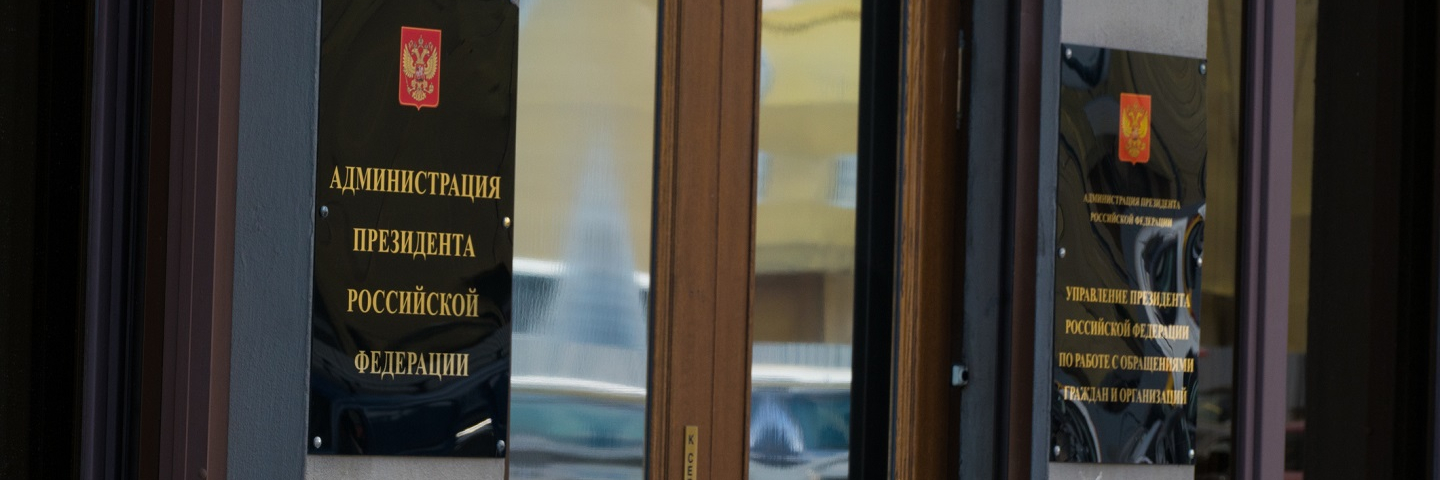
The Presidential Administration: The Command and Control Nexus of Putin’s Russia
Executive Summary
- The Russian political system is a diffuse and informal one, but the closest thing to a true command-and-control nexus for President Vladimir Putin, including non-military interference abroad, is the Presidential Executive Office of Russia, also known as the Presidential Administration (AP, Administratsiya Prezidenta).
- The office performs crucial roles as the main gatekeeper to Putin, his primary source of information, and the president’s voice in terms of not only public discourse and presentation but also the setting of goals and the establishment of limits within the executive.
- This is a secretive institution, so it is hard to be certain of its organizational code and culture. However, while it appears fully committed to Putin’s current geopolitical campaign and convinced that Russia faces an existential political and cultural challenge from the West, it is able (and required) to see the big picture and, as a result, is more risk- averse than the Russian intelligence community and perhaps even the military.
One of the key challenges when seeking to understand Russian policy—and thus to predict it—is identifying where power truly lies in this system. There is a formal structure that looks strikingly similar to most Western ones, with a separation of powers among the judicial, executive, and legislative branches; a cabinet of ministers; and a clear constitutional basis for power. Of course, in practice, little of this truly matters. This is a hyper-presidential regime, in which the law offers few constraints to the executive, parliament is largely a rubber-stamp body packed with selected yes-people, and the cabinet is essentially a structure devoted to the execution of policy rather than its formulation.
Putin’s regime is thus, in many ways, an “adhocracy” in which formal office and role often have little real meaning.1 His friends in business may also drive foreign policy in some areas more directly than the Ministry of Foreign Affairs does; after all, Moscow’s stance on Venezuela owes more to the concerns of Igor Sechin’s Rosneft corporation than to anything else. Putin’s defense minister and former political impresario—Sergei Shoigu and Vladislav Surkov, respectively— have shaped policy toward Syria and the Donbas. The model is more reminiscent of the tsar’s court, with (1) access to the vozhd (the boss) and his trust and favor being the most important political currencies and (2) “curators” appointed at the leader’s pleasure being responsible for particular issues and areas.
To this end, many of the activities in Russia happen not because Putin decreed or even approved them but because individual “political entrepreneurs”—businesspeople, politicians, ministries, departments, television anchors, corporations, even clergy—thought they would please him. As Gleb Pavlovsky has put it, “decision-making via go-aheads and meaningful omissions has yielded a contest in which lower-level curators try to outdo one another in their demonstrations of loyalty to Putin.”2 From the Kremlin’s point of view, this is an admirably cost-effective approach. Initiatives that fail cost nothing and can be disowned, while those that succeed can be adopted and their principals rewarded. This helps explain the apparent—genuine—lack of some grand strategy or master plan when it comes to Russian active measures and adventurism abroad, which conform solely to a broad strategy of disruption, seeking to divide, distract, and dismay the West.
That said, there has to be some central node to communicate the Kremlin’s broad wishes, as well as to identity and amplify successful initiatives and kill off ineffective or counterproductive ones. There are also certain specific operations, especially responses to particular crises or opportunities, that demonstrate a degree of planning and cross-agency and cross-platform coordination, whether in response to a command from above or an initiative from below.
Coordination among the Federal Security Service (FSB, Federal’naya sluzhba bezopasnosti), Foreign Intelligence Service (SVR, Sluzhba vneshnoi razvedki), and military intelligence, traditionally a problem, is often handled by the Security Council secretariat. However, when other sectors are involved—such as the media—the AP assumes a key role. After Malaysia Airlines Flight MH17 was shot down over the Donbas in 2014, the practical dimension of removing evidence was handled by the defense ministry, while the FSB sought to block access to eyewitnesses and participants. However, because minimizing the impact was a much wider, cross-government effort, including the Ministry of Foreign Affairs, mass media, internet trolls, and other bodies, it was ultimately managed by an ad hoc task force.3
Conversely, there was retrospective (and ultimately misguided) coordination in the response to the infamous 2016 “Lisa Affair.” According to reports, a 13-year-old Russian-German girl claimed to have been kidnapped and raped by Turkish or Arab refugees in Germany.4 Initial accounts of the event surfaced on social media in Germany, and the Russian media recycled those accounts, which were then cited by Russia’s foreign minister, Sergei Lavrov, and briefly served as the basis of a comprehensive political and media campaign. This proved to be a serious mistake because the story was soon debunked and elements of the German elite previously sympathetic to Moscow’s position were seriously disillusioned.
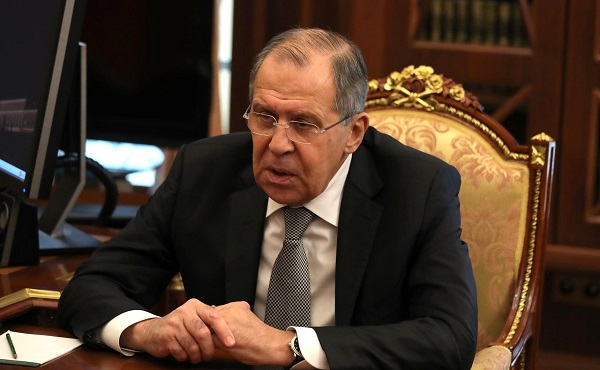
The Presidential Administration
Where, then, is the political command-and-control center of the regime?5 In both the MH17 and Lisa Affair cases, as well as many operations and activities that are not essentially media-driven, it turns out to be the AP, the body that helps the president formulate policy, communicates it to the executive agencies, coordinates its execution, and monitors (and if necessary polices) performance.6 The AP is broadly comparable in formal remit to the U.S. Executive Office of the President or the British Cabinet Office, but it is substantially more powerful in practice because of the informal nature of the Russian system.
The Security Council secretariat is part of the AP, albeit a largely autonomous one, based in its own offices on Ipatevskyi Alley.7 Along with having a sizeable administrative team and the infrastructure for many special committees, discussed later, the AP brings together a range of individuals whom Putin appears to trust for their advice and capacity to carry out his will. These individuals include Kremlin Press Secretary Dmitry Peskov, Foreign Policy Adviser Yuri Ushakov, and Surkov, who is one of the several “Assistants to the President.” Thus, the AP has an unparalleled breadth of responsibility, from defusing domestic unrest8 and strategizing for economic growth to exploiting the Arctic9 and developing the North Caucasus. In the latest iteration of the Agency for Political and Economic Communications’ ranking of the 100 most powerful politicians in Russia, Presidential Chief of Staff (and thus AP head) Anton Vaino came in fourth and his First Deputy for Domestic Affairs Sergei Kirienko came in fifth, behind only Putin, Prime Minister Dmitry Medvedev, and Defense Minister Sergei Shoigu.10
The AP is a substantial organization based in the Kremlin, with its main offices in a gated section of Staryi Ploshchad, Old Square, ironically the home of the old Communist Party Central Committee apparatus. The AP’s official establishment strength is just under 1,600 people, but this excludes a substantial complement of staff seconded from other agencies, including the intelligence and security services. It also excludes many of the support staff, such as the guards provided by the Federal Protection Service (FSO, Federal’naya sluzhba okhrany), as well as the Security Council secretariat. The real strength is thus closer to 2,000 people.
Presidential Fixers
The AP’s crucial roles appear to be fourfold, and each role brings its own form of power within the Russian system:
1. Presidential gatekeeper. The officials and individuals who do not have a personal relationship with Putin or an institutionalized means of direct access must almost invariably go through the AP. In such a system, access to the president is a currency that can be monetized directly through receiving Putin’s approval for a pet project or indirectly by advocating for someone else’s project. The AP thus not only is able to have a major influence over which views the president is exposed to but also reaps the benefits of being the controller of this asset. Of course, as noted, there are those who do not need to work through the AP–and there are ways around it. When businessman Konstantin Malofeev wanted the green light for his notion of an attempted coup in Montenegro in 2016, for example, the AP appears not to have been willing to grant his access to Putin. However, Malofeev was able to bypass this by winning the support of Security Council Secretary Nikolai Patrushev, who, while technically part of the AP, is effectively autonomous and has his own direct access to the president.11 Even so, there is an etiquette at work, and Patrushev did give the AP (probably Alexei Gromov, the first deputy chief of staff responsible for foreign affairs) prior warning, so AP staff did have a chance to express their views, even though this was not enough to prevent the attempted coup from going ahead.12
2. Presidential briefer. As a corollary of the first role, the AP has very considerable control over the tone and nature of oral and written briefings delivered to Putin. It does not get to edit the three daily briefing files he receives every morning from the FSB (on domestic affairs), the FSO (on elite affairs), and the SVR (on international affairs), but it does receive advance copies and thus has an opportunity to prepare additional materials based on the president’s anticipated requests. Furthermore, especially through its Experts Directorate, the AP is one of the government’s most extensive commissioner of reports from think tanks, scholars, and other outside sources. However, these are infamously often written “to order,” precisely to support a particular idea or initiative. Thus, although Putin is notoriously prickly about any sense that he is being “handled,” the AP is also able to present a range of “independent” reports to support its favored policy options.
3. Presidential voice. Every week, Press Secretary Peskov meets the editors of the primary government media platforms to lay out in broad terms the kind of issues the Kremlin would like to see covered and how they should be approached. This broad guidance is supplemented by a regular stream of secret memoranda known as temniki dispensed by the Press and Information Directorate13 and Gromov (whose portfolio also includes the media).14 However, this curating of the official line and the president’s public image is perhaps the least important aspect of the AP’s role as Putin’s voice. The AP is the institution communicating government policy and ambitions to both the rest of the executive machine and the legislature. Chief of Staff Vaino’s personal team works closely with Prime Minister Medvedev’s at the White House government building, the Domestic Politics Department liaises with State Duma Speaker Vyacheslav Volodin (himself a former AP first deputy head), and the Foreign Policy Department provides guidance to the Ministry of Foreign Affairs. Furthermore, a whole slew of other AP departments and committees are responsible for marshaling and disciplining other aspects of society that are being mobilized for state policy, from the Presidential Council for Coordination with Religious Organizations to the Presidential Council for Cossack Affairs. That said, it is clear that the AP does not have an unlimited mandate. It appears, for example, not to be in a position to dictate policy to the intelligence agencies or the defense ministry.
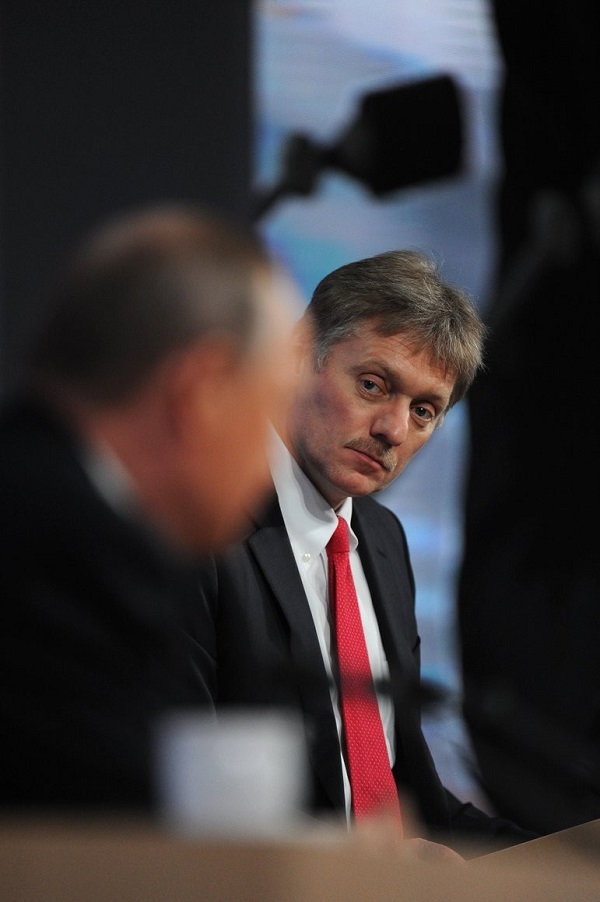
4. Presidential broker. In such a complex political environment, the AP sometimes must negotiate, and, above all, it plays an important role, along with the Security Council, in brokering deals between powerful and often ruthlessly self-interested institutions, especially in the business and security sectors. In 2019, for example, the AP played a crucial role in bringing together Oleg Belozerov, the chief executive officer of Russian Railways (RZhD), and the defense ministry, and the two parties ultimately agreed on the modernization and expansion of the Baikal-Amur Mainline railway. This project is part of the infrastructure component of Putin’s “May Decrees,” issued in 2018, but is much less of a commercial priority for RZhD than, for example, the Trans- Siberian Railway. On the other hand, the defense ministry has been eager to see capacity on the more defensible Baikal-Amur Mainline increased, so an agreement has been reached that a proposed second branch of railway from Tynda to Komsomolsk-on-Amur will be started in 2020, with work spearheaded by five new brigades of the Military Railway Troops.15 Neither RZhD nor the ministry had previously been willing to make the concessions needed to close the deal; it took the intervention of the AP to make this happen.
Putin’s Men and Their Culture
Just as Secretary Patrushev’s character, contacts, and concerns have done much to shape the formal and informal roles of the Security Council, so too have the AP’s precise interests and position in the system been influenced by its senior figures. Under former Russian President Boris Yeltsin, six successive heads tended to spend at most a couple of years in post and thus had little opportunity to impose their personalities on the AP.16 There have been as many presidential chiefs of staff over the next two decades: Aleksandr Voloshin (1999–2003), Dmitry Medvedev (2003–2005), Sergey Sobyanin (2005–2008), Sergei Naryshkin (2008–2011), Sergei Ivanov (2011–2016), and Anton Vaino (2016–the present).
Naryshkin had served in the foreign service and is believed to have been in the Committee for State Security (KGB, Komitet Gosudarstvennoy Bezopasnosti), and he is now head of the SVR. He brought a greater emphasis on foreign affairs to the AP, something built on by his successor, Ivanov. A veteran of the KGB and the FSB, Ivanov was a powerful figure with a formidable set of experiences that also included being secretary of the Security Council, minister of defense, deputy prime minister and then first deputy prime minister. As a result, he brought to the AP not just experience in foreign operations but also an active interest. Especially given that it coincided with the sharpening of tensions with the West, his incumbency seems to have been crucial in making the AP the central command-and-control node for Russian meddling and adventurism abroad short of outright armed conflict.
Ivanov’s successor, Vaino, so far appears a rather less forceful figure, and although he is a foreign service veteran, he is especially interested and involved in domestic political matters. Thus, the meddling and adventurism activities abroad have largely devolved to First Deputy Chief of Staff Gromov, another ex-diplomat, especially as the media affairs dimension of his portfolio also extends to Russian media abroad, often considered a central element of Moscow’s active measures political campaigns.17 The irony is that precisely because Vaino and Gromov lack Ivanov’s authority within the security realm and his relationship with Putin, they may be less willing and able to resist more-aggressive policy initiatives, lest they appear weak.
Overall, the AP is a secretive organization with a strong esprit de corps underpinned by a desire to protect its discretion, so it is a challenge to develop a good sense of its culture, procedures, and worldview. It does not appear to have a rigid internal hierarchy; like a microcosm of the Russian state, it is characterized by multiple, often overlapping and competing political fiefdoms; a tendency toward improvisation; and a proliferation of initiatives pushed from below, hoping for approval from above.
Broadly speaking, like the Security Council, the AP is an essentially conservative agency. It is arguably as hawkish as, for example, the intelligence services but not so comfortable with risk. Although it might be going too far to describe the AP as a moderating influence, the AP does appear to usually adopt a perspective that is more attuned to the potential dangers of various initiatives, especially the chance of domestic political blowback. The AP is as committed to Putin’s agenda of restoring Russia’s great-power status as any other Russian agency or ministry—both because of genuine belief and the need to assert loyalty to the presidential mission—but it is more inclined to play a longer and more cautious game.
For example, the AP played a key role in the concerted campaign launched in 2016 in response to the debate in Finland about joining the North Atlantic Treaty Organization (NATO). This was a coordinated operation that combined overt saber-rattling with covert destabilization. The Russian armed forces stepped up troop movements near the border, and within hours of Helsinki’s signing a limited defense cooperation pact with the United States, Russian warplanes made incursions into Finnish airspace.18 Meanwhile, the “troll factories” and state media channels alike stepped up their warnings that Finland was voluntarily putting itself in harm’s way, even raising spurious claims that, because Vladimir Lenin had not been the Russian Empire’s legitimate ruler, he could not legally have granted Finland independence from the empire in 1917.19 In a series of carefully crafted interventions, Putin himself made it clear that Russia would retaliate if Finland joined the Alliance.20 However, according to two separate Moscow-based sources, one of the intelligence agencies (one claimed the SVR, the other the FSB) also sought clearance to mount a provocation, possibly an attempt to blackmail an outspoken pro-NATO politician. According to these sources, the consensus within the AP was that this would be more likely to be counter-productive, and they were successfully able to prevail on the president to veto the idea. Thus, although the AP as an institution clearly subscribes to the wider Kremlin operational code and wartime mentality, it is also more cautious and capable of placing potential short-term gains against longer-term risks.
For Academic Citation
Mark Garleotti, “The Presidential Administration: The Command and Control Nexus of Putin’s Russia,” Marshall Center Security Insight, no. 44, Febuary 2020,
https://www.marshallcenter.org/en/publications/security-insights/law-enforcement-agencies-russian-domestic-security-and-international-implications-0.
Notes
1 For more on this concept, see Mark Galeotti, We Need to Talk About Putin, (London: Ebury Press, 2019, especially pp. 16–21; and Mark Galeotti, “Russia Has No Grand Plans, but Lots of ‘Adhocrats,’” Business New Europe, January 18, 2017, accessed March 6, 2020, http://www.intellinews.com/stolypin-russia-has-no-grand-plans-but-lots-of-adhocrats-114014.
2 Gleb Pavlovsky, “Russian Politics under Putin: The System Will Outlast the Master,” Foreign Affairs, Vol. 95, No. 3, 2016, p. 17.
3 NATO Strategic Communications Centre of Excellence, Analysis of Russia’s Information Campaign Against Ukraine, Riga, Latvia, September 2014, accessed March 6, 2020, https://www.stratcomcoe.org/analysis-russias-information-campaign-against-ukraine.
4 Kaan Sahin, “Germany Confronts Russian Hybrid Warfare,” Carnegie Endowment for International Peace, July 27, 2017, accessed March 6, 2020, https://carnegieendowment.org/2017/07/26/germany-confronts-russian-hybrid-warfare-pub-72636.
5 As opposed to the National Defense Management Center in the Ministry of Defense building, which handles military operations, including those of a non-kinetic nature.
6 The AP is still an understudied institution, but see Anton Zuykov, “Peculiarities of the Nature and Status of the Russian Presidential Administration: Historical, Political and Legal Overview,” Journal of History, Culture and Art Research, Vol. 7, No. 1, 2018. For some interesting recent explorations of its role, see Daria Isachenko “Coordination and Control in Russia’s Foreign Policy: Travails of Putin’s Curators in the Near Abroad,” Third World Quarterly, Vol. 40, No. 8, 2019; and Alexander Sergunin and Valery Konyshev, “Forging Russia’s Arctic Strategy: Actors and Decision-Making,” Polar Journal, Vol. 9, No. 1, 2019.
7 Mark Galeotti, “Russia’s Security Council: Where Policy, Personality, and Process Meet,” Security Insights, No. 41, October 2019, accessed March 6, 2020, https://www.marshallcenter.org/en/publications/security-insights/russias-security-council-where-policy-personality-and-process-meet.
8 See Carolina Vendil Pallin, “Russia’s Presidential Domestic Policy Directorate: HQ for Defeat-Proofing Russian Politics,” Demokratizatsiya, Vol. 25, No. 3, 2017.
9 See, for example, Sergunin and Konyshev, 2019.
10 Dmitry Orlov, “100 ведущих политиков России в 2019 году,” Nezavisimaya Gazeta, January 13, 2000, accessed March 9, 2020, http://www.ng.ru/ideas/2020-01-13/7_7766_people.html.
11 Christo Grozev, “Balkan Gambit: Part 2. The Montenegro Zugzwang,” Bellingcat, March 25, 2017, accessed March 6, 2020, https://www.bellingcat.com/news/uk-and-europe/2017/03/25/balkan-gambit-part-2-montenegro-zugzwang.
12 Patrushev’s role was asserted to me by a Bulgarian intelligence officer in Sofia in March 2017 and confirmed by a Russian intelligence veteran in Moscow in April 2017, who added detail on how this was brought to Putin.
13 Ilya Kizirov, “Confessions of a (Former) State TV Reporter,” Coda, April 25, 2017, accessed March 6, 2020, https://codastory.com/disinformation-crisis/information-war/confessions-of-a-former-state-tv-reporter.
14 Aleksandr Baklanov, “‘«Проект» выпустил расследование об Алексее Громове — кураторе телеканалов. Он владеет элитной недвижимостью, его сын ведет бизнес с миллиардерами” Meduza, January 23, 2019, accessed March 6, 2020, https://meduza.io/feature/2019/01/23/proekt-ob-aleksandre-gromove-kuratore-rossiyskih-telekanalov-on-vladeet-elitnoy-nedvizhimostyu-ego-syn-vedet-biznes-s-abramovichem-i-deripaskoy.
15 “В ходе коллегии Минобороны РФ Шойгу назвал число вылетов стратегических бомбардировщиков в этом году,” Nezavisimoe voennoe obozrenie, December 24, 2019, accessed March 6, 2020, http://nvo.ng.ru/nvo/2019-12-24/100_events2412_4.html.
16 The successive AP heads were Yuri Petrov (1991–1993), Sergey Filatov (1993–1996), Nikolai Egorov (1996), Anatoly Chubais (1996–1997), Valentin Yumashev (1997–1998), Nikolai Bordyuzha (1998–1999), and Aleksandr Voloshin (1999–2003).
17 “Кириенко и Громов поделили сферы кураторства СМИ,” RBC, November 22, 2016, accessed March 6, 2020, https://www.rbc.ru/politics/22/11/2016/58341c319a79471ca4220674.
18 “Finland Jets Monitor Russian Fighters on Border Flights,” BBC News, October 7, 2016, accessed March 6, 2020, http://www.bbc.com/news/world-europe-37584058.
19 Jussi Rosendahl and Tuomas Forsell, “Finland Sees Propaganda Attack from Former Master Russia,” Reuters, October 19, 2016, accessed March 6, 2020, http://www.reuters.com/article/us-finland-russia-informationattacks-idUSKCN12J197.
20 “Putin: Russia to Respond If Finland Joins NATO,” RT, July 1, 2016, accessed March 6, 2020, https://www.rt.com/news/349185-putin-nato-dialogue-start/.
About the Author
Mark Galeotti is director of the London-based consultancy Mayak Intelligence, an honorary professor at the University College London School of Slavonic and East European Studies, a senior associate fellow at the Royal United Services Institute, and a senior non-resident fellow at the Institute of International Relations Prague. He is an expert and prolific author on transnational crime and Russian security affairs.
Russia Strategic Initiative (RSI)
This program of research, led by the GCMC and funded by RSI (U.S. Department of Defense effort to enhance understanding of the Russian way of war in order to inform strategy and planning), employs in-depth case studies to better understand Russian strategic behavior in order to mitigate miscalculation in relations.
The Marshall Center Security Insights
The George C. Marshall European Center for Security Studies in Garmisch-Partenkirchen, Germany, a German-American partnership, is committed to creating and enhancing worldwide networks to address global and regional security challenges. The Marshall Center offers fifteen resident programs designed to promote peaceful, whole of government approaches to address today’s most pressing security challenges. Since its creation in 1992, the Marshall Center’s alumni network has grown to include over 13,985 professionals from 157 countries. More information on the Marshall Center can be found online at www.marshallcenter.org.
The articles in the Security Insights series reflect the views of the authors and are not necessarily the official policy of the United States, Germany, or any other governments.
